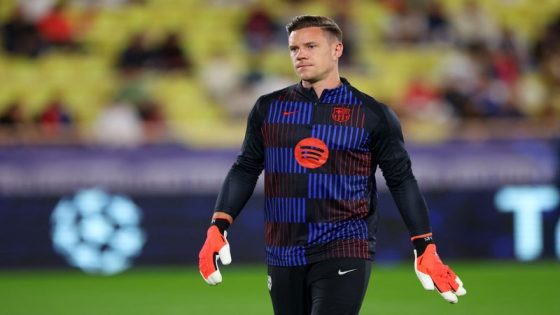Like her fellow documentarian Frederick Wiseman, Claire Simon is drawn to institutions, and the human flow that keeps them running. Where many of Wiseman’s films favor a big picture, a systemic view, Simon often works in more intimate close-up, picking out faces and personalities from a larger institutional community. That warmly sociable approach serves the veteran French filmmaker well in “Elementary,” the latest of several Simon documentaries to be set in and around a place of learning — in this case, a diversely attended public elementary school in the outer-Paris suburb of Ivry-sur-Seine, also the backdrop for her 2018 high-school portrait “Young Solitude.”
Looking on with keen attention but little obstruction as the school’s staff and student body negotiate daily challenges of education, communication and conflict, “Elementary” is a gentle, good-humored film, but not a toothless one — making as it does an unspoken but resonant plea for France’s squeezed public schooling system via its lively vignettes of classroom and playground activity. Following the relative arthouse success last year of Simon’s imposing healthcare opus “Our Body,” this shorter, brighter work should easily find sympathetic distributors following its premiere in Cannes’ Special Screenings program. Comparisons with Nicolas Philibert’s similarly schoolhouse-focused 2002 specialty hit “Être et Avoir” are easy to make, though they also serve to highlight the modern social milieu of Simon’s film — its corner of working-class Paris in cultural flux, with a substantial immigrant population.
If funding is tight at Makarenko Elementary, that doesn’t dampen the enthusiasm of its teaching staff, whose daily duties span the roles of educator, caregiver and counselor, attending to the special needs of certain individual students while while leading large, often cheerfully garrulous classes. It’s a balance they strike with minimal authoritarianism, preferring instead to relate to the kids on genial, egalitarian terms, with voices hardly ever raised.
Any viewers accustomed to a stodgier educational environment will be struck by the bracing informality on display here, from the teachers’ breezy casualwear and uncovered tattoos to the progressive tone of classroom discourse, in which even testy subjects like religion and the supernatural are opened to constructive, freeform conversation. More adventurous still is a song chosen for a music class: A poignant, extended scene observes a choir of second-graders singing a word-perfect rendition of “Dommage” by French hip-hop duo Bigflo & Oli, with its very adult reflections on loneliness, surrendered ambitions and domestic abuse. (Later, a singalong to a French translation of the Disney standard “I Just Can’t Wait To Be King” provides some lighter relief.)
We sit in, too, on more traditionally curriculum-based classes, as pupils are quizzed on multiplication tables and made to parse sentences for parts of speech — though there’s no rote learning here, with children uncertain of the answers not brusquely corrected, but helpfully coaxed in the right direction. Less obvious activities are granted educational purpose: It’s fascinating to watch pupils pair up and play checkers, aiding not just their logical and strategic thinking, but, when it comes to the respective arts of winning and losing, interpersonal skills too. (“We’ll be happy for the winner and happy for the loser, for playing to the end,” a teacher sunnily explains.)
On the playground, meanwhile, soccer-style red-card timeouts are given for unacceptable behavior, but pupils aren’t micromanaged: Simon’s camera captures the sometimes harsh social rules and restrictions enforced by children without adult supervision. Classes and recess aren’t too rigidly divided, either, if the situation calls for it. One neurodivergent child is given solo playground time, calming himself with laps on his scooter, while his peers are in class; noticing a child asleep at his desk, a teacher instructs the class not to disrupt his needed rest.
Loose but not haphazard, the film’s porous structure roughly follows two timelines, proceeding from the beginning of a school term to pre-summer graduation, while also outlining the course of a school day. Free from voiceover and talking-head interviews, “Elementary” also avoids imposing a narrative on proceedings: Though individual children and teachers are spotlit at particular moments of interest, none are appointed as “characters” to be followed consistently through proceedings. Still, certain magnetic figures assert themselves amid the collective — none more so than Wassim, an outspoken and devout Muslim pupil who becomes the focus of the film’s standout setpiece, a classroom debate about religion that yields more insight than many an adult theology lecture. Insisting the religion you’re raised with can’t be run away from, the boy is incredulous when his teacher suggests you don’t have to be religious at all. A later scene sees him directly quizzing strangers on their religious affiliation; a long-term educational arc is in progress.
“Elementary” is never derailed by rhetoric or politics, however. Even its most heated classroom exchanges are all in a day’s work — as are exceptions from routine like a rowdy field trip on a Seine riverboat through central Paris, its supervising teachers exhausted and amused in equal measure, or a costume parade through the residential streets of Ivry-sur-Seine, or, in the teariest of the film’s musical diversions, a graduation-day performance of Rihanna’s “Diamonds” that recalls the same song’s toughly empowering use in Céline Sciamma’s “Girlhood.” Through this patchwork of activity, Simon tacitly celebrates the labor, patience and creativity that goes into nurturing young minds — there’s no talk of budget or salary, but the selfless modesty of both is self-evident. To raise a child, it does indeed take a village, or at least a suburb, or at least a school.
Source Agencies



